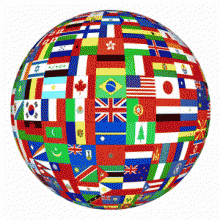Language Exchange
The way to get free lessons is to set up a language exchange with a native speaker of the language you want to learn. The US and Canada are full of immigrants who want to learn English. They may study grammar all day but lack the ability to speak.
For example, if you want to study Japanese, find out if there is a community of Japanese immigrants in your town. They may have a website or newspaper. Check Japanese markets or restaurants. You can pick up the newspapers there or just put up a little ad.
Or you can visit a university or college in your town. Go to the English department and see if they have ESL classes (English as a second language). Then you can ask around and find the best place to leave your ad. You probably want to leave an email address and not a phone number because it can be more difficult to communicate on the phone.
Set up the place to meet, like a Starbucks or quiet coffee shop. If you want to save money on coffee, maybe the lobby of the library – an area that’s quiet but where you won’t get shushed.
Bring a notepad and think of some easy topics to start with. I recommend that you spend the first half of the lesson speaking the language you want to learn. Try not to speak any English at all until you’ve reached the halfway point of the lesson. Then switch to English so your partner can practice.
If you set up a regular schedule, you will learn much more quickly and for free! You might also make a good friend in the process.






